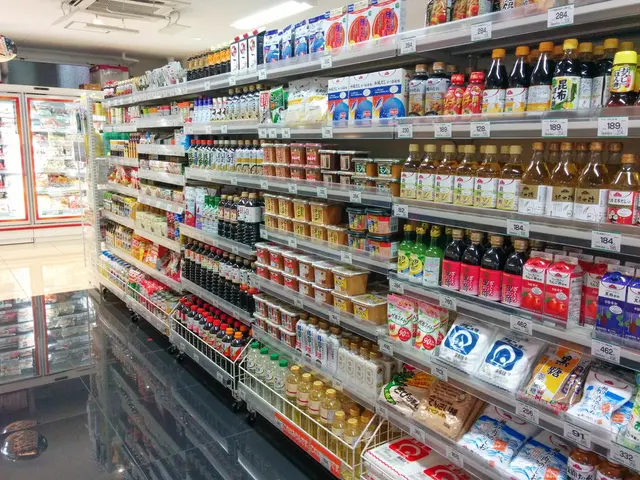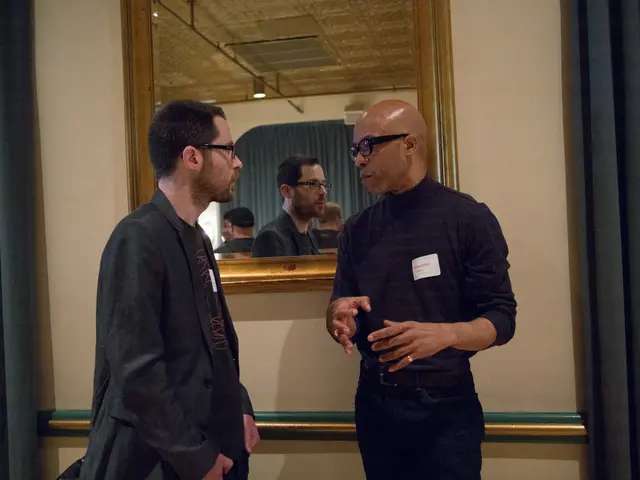Exploring the Metaverse for Educational Applications: A Step-by-Step Guide
The Metaverse, a virtual reality space where users can interact with a computer-generated environment and other users, is revolutionizing the world of education. Offering a fun and innovative learning environment with immersive graphics, interactive elements, and an expansive world, the Metaverse is transforming the way students learn.
Educational institutions are embracing this digital revolution by offering courses tailored for the Metaverse at more affordable prices compared to traditional courses. Platforms like Edulink, designed to help educators create virtual classrooms, offer tools such as student tracking, messaging, and digital resources to keep students engaged and on track with their studies.
One such platform is MindsUp, designed to help educators create engaging and interactive lessons for their students. Features like quizzes, video chat, and other collaboration tools keep students motivated while online learning. Magikhub, a 3D educational platform, helps teachers create immersive lessons, while EdgEx, designed for the Metaverse augmented reality, offers a range of immersive worlds and interactive elements for creating personalized lessons.
Eonium, a virtual metaverse learning environment, allows students to access video-based courses and educational resources from anywhere in the world. Interactive elements such as forums, Q&A sessions, and other collaboration tools further enhance the learning experience.
Effectively using the Metaverse for digital education involves leveraging its immersive, interactive, and personalized features. Virtual classrooms and labs create realistic learning environments, while virtual field trips allow students to explore real-world settings in an immersive manner. Game-based learning transforms lessons into games, promoting collaboration and critical thinking, and interactive challenges make learning more engaging and fun.
Personalized learning is another key aspect, with AI-powered adaptive learning tailoring learning experiences based on individual student performance, preferences, and learning rates. Intelligent tutoring systems provide real-time instruction and assessment, adjusting content complexity according to student progress.
To ensure accessibility and equity, it's crucial to address the digital divide and prepare educators to effectively integrate Metaverse tools into their teaching practices. Affordable and scalable solutions are sought to deploy Metaverse technologies widely, and ethical considerations are addressed to prioritize student needs and ensure fair access while addressing privacy concerns.
In addition to traditional education, the Metaverse offers opportunities for improved professional networking, enabling students to connect with other professionals in their field. Flexible learning experiences allow students to access course material and resources at any time and from anywhere.
Platforms like EmpiEd, Mazeverse, Augmented Courses, and KwikLearn further enhance the Metaverse learning experience. EmpiEd offers personalized lessons and virtual activities, while Mazeverse is an educational game designed to help students learn various topics in a fun and interactive way. Augmented Courses allow medical students and other students to explore 3D virtual environments, and KwikLearn helps teachers create interactive lessons tailored to each student's needs.
By integrating these strategies, educators can create a more inclusive, engaging, and effective learning environment within the Metaverse, heralding a new era of digital education.
- Technology plays a significant role in education within the Metaverse, as platforms like Edulink, MindsUp, Magikhub, EdgEx, Eonium, EmpiEd, Mazeverse, Augmented Courses, and KwikLearn offer digital tools that create immersive classroom environments, personalized lessons, and interactive elements, transforming the way students learn.
- The Metaverse also provides opportunities for lifestyle enhancement by facilitating professional networking and offering flexible learning experiences that allow students to access course material from anywhere, thereby fostering self-development and education-and-self-development in modern society.




